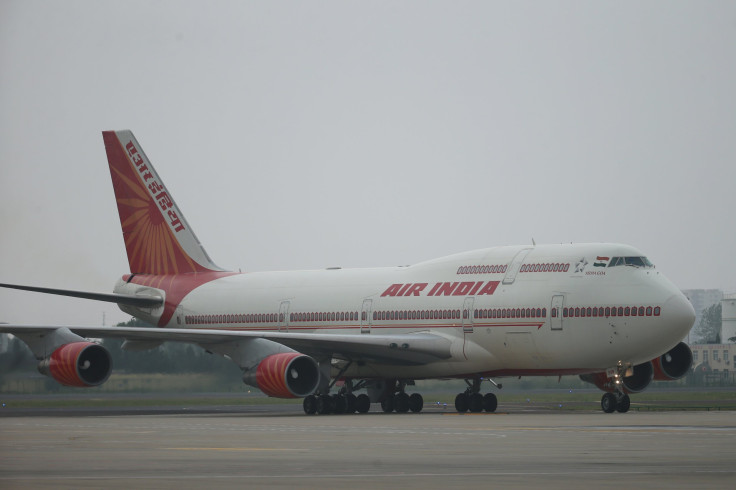Air India For Sale: Indian Government Offering 100% Stake In Troubled National Carrier

KEY POINTS
- The government unuccessfully tried to sell a 76% stake in Air India in 2018
- Air India has 14,000 employees
- Air India has been incurring losses for years
The Indian government said on Monday that it will sell its entire stake in debt-wracked Air India, the country’s national carrier.
The offer, which would compel any bidder to assume debt of about $3.2 billion as well as other liabilities, came almost two years after the government’s effort to sell a controlling 76% stake in the airline failed to line up any buyers.
The government has set a March 17 deadline for initial submissions. Qualified bidders will be notified on March 31.
The government added it will only sell the airline to an Indian-controlled entity.
The New Delhi government, ensnared in a slowing economy, is eager to unload businesses that are incurring losses.
"This is a very welcome change from [the] last time to entice private players to bid for the carrier," said Jitendra Bhargava, former executive director of Air India.
However, Air India’s total debt is much larger than the $3.2 billion figure the government is asking buyers to take on – the airline is reportedly $8 billion in debt. It is unclear what the state will do with the remaining debt.
"This [debt assumption] could be a challenge because it is a very large portion of the debt to be taken care of when you consider that they have repayment schedules over eight to 10 years on around 70 aircraft," said Mahantesh Sabarad, head of retail research at SBICAP Securities of India. "Buyers will also need to infuse substantial funds into the airline, so we expect the startup costs for anyone getting into this to be high."
A potential restructuring of Air India's 14,000-plus workers would also pose a challenge.
"I am concerned that the government hasn't reached out substantively to its critics, which includes employee unions and politicians," Bhargava said. (In the previous attempt to sell a majority stake in the airline, the government required the buyer to retain all its employees).
But Kapil Kaul, the India chief of the CAPA aviation consultancy, is optimistic the government will find a buyer this time.
"As the entire debt, excluding aircraft debt, is taken out of the deal, it signals a very determined effort to exit Air India, to allow taxpayers' funds be utilized for the government's social agenda," said Kaul.
The Business Standard newspaper reported that Hinduja Group, an Indian conglomerate based in Mumbai; and Interups, a U.S.-based investment firm, have both expressed interest in purchasing Air India.
On Monday, civil aviation minister Hardeep Singh Puri said the government could change some terms of the offer if that would make it easier to find a buyer.
"We have gone into this exercise, months of planning and preparation have gone into it and this is not the final [deal]. The bidders are going to get 45 days, they are going to come back to us. It is an interactive process," Puri said. "We are open to revising, refining and tweaking our views."
In November Puri had warned that the airline would “have to close down if it is not privatized.”
The successful buyer would gain control of Air India's 4,400 domestic and 1,800 international landing and parking slots at domestic airports, and 900 slots at overseas airports. The buyer would also receive 100% of low-cost subsidiary Air India Express and 50% of AISATS, a company that operates cargo and ground handling services at major Indian airports.
Air India was nationalized by the government in 1953. In 2007, Air India merged with Indian Airlines, a government-owned domestic airline.
Air India has been surviving on a $4.2 billion 10-year bailout it received in 2012.
Over the past decade Air India has been losing market share to lower-cost rivals.
In 2019, Air India posted a net loss of about $180 million.
The airline has blamed its poor performance on high aviation fuel prices, high airport usage charges, and a weakening rupee, among other factors.
Some members of Prime Minister Narendra Modi’s ruling Bharatiya Janata Party oppose the sale of the airline.
Subramanian Swamy, an MP, has threatened legal action against the divestment.
"This deal is wholly anti-national and I will (be) forced to go to court. We cannot sell our family silver," Swamy tweeted.
© Copyright IBTimes 2025. All rights reserved.




















